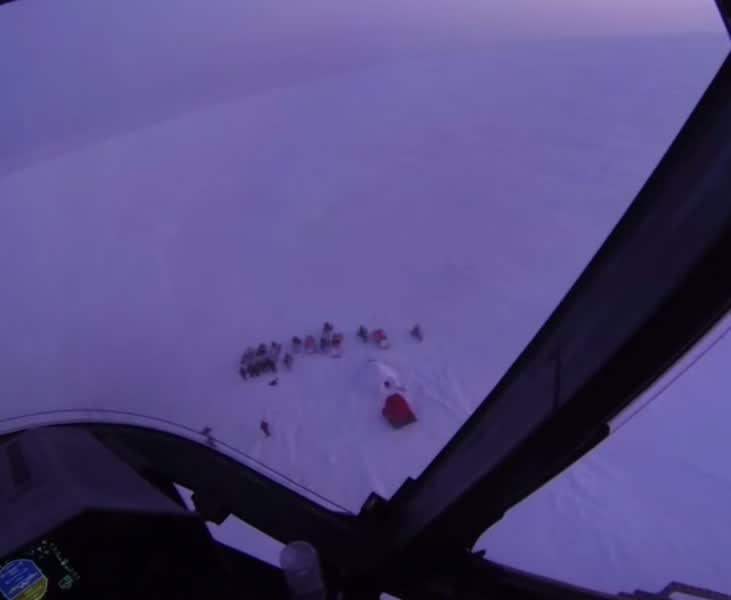Canadian Hunters Rescued from Ice Floe 17 Miles from Shore
OutdoorHub Reporters 01.14.15

Officials from the Royal Canadian Air Force (RCAF) are praising eight hunters in Nunavut for their preparedness and good sense in their own rescue on Sunday. According to the RCAF, the hunters spent two days on the large ice floe after it separated from shore on Friday and quickly drifted nearly 17 miles south of Coral Harbor, where the hunters were eventually airlifted to after being rescued by helicopter.
“The fact that these gentleman were prepared to be out in the elements had a real big impact on a positive outcome here,” Steve Neta, public affairs officer with the RCAF, told the CBC.
Experienced hunters—especially those hunting in the frigid conditions of Canada’s far north—know how important proper preparation and gear is not only for a successful harvest, but for survival in the wild if something goes wrong. Being stranded on a moving ice floe as it slowly breaks up can be a terrifying experience, but luckily the hunters had two of the most important items they could have packed: a radio and a personal locator beacon.
When the group initially became stranded on Friday, they notified local rescue services with their location. At the time, the ice floe was only about a mile off shore, yet rescue teams were unable to reach the hunters in time. By Saturday, the operation was taken over by the Joint Rescue Coordination Center in Trenton, which contacted the hunters and was able to airdrop additional supplies, such as drinking water, food, and inflatable rafts to the trapped men. The hunters were already adequately provisioned even before the supply drop, and had built a small shelter out of the snow. Yet the main concern for rescuers was that the ice floe would break up, as it had already started to do so during the weekend.
Despite that, the hunters were in good spirits and remained safe until a RCAF helicopter picked them up and transported them back to Coral Harbour. The men are stated to be in good condition.
“This case shows how preparedness greatly increases the chance for survival,” said Major Vince Meunier, the officer in charge of the Joint Rescue Coordination Center. “It was a great cooperative effort between local volunteer rescue groups, the territorial emergency Measures organization, and the Canadian Armed Forces. We’re glad to see a happy conclusion to this mission.”
You can see a video of the rescue below:

